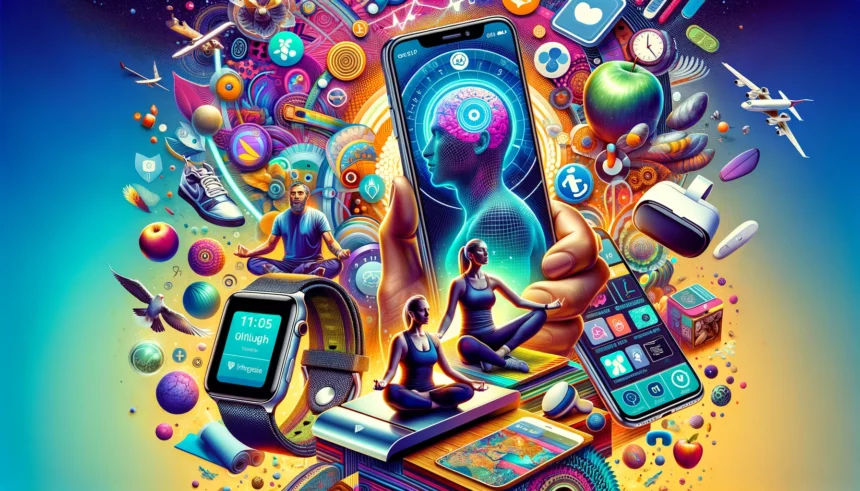Introduction
Embracing technology can significantly enhance our well-being by helping us manage everything from fitness and diet to our mental health. With countless apps and gadgets at our disposal, we’re equipped like never before to take control of our personal health. Let’s explore some of the most impactful technologies shaping our wellness today.
Health and Fitness Apps
Health apps are our digital companions in the journey toward better health, offering tools tailored to our individual needs. Here’s how they help:
Activity Trackers
- Apps like Fitbit and Google Fit track your steps, calories burned, and active minutes. They encourage daily activity with goals and reminders.
Diet and Nutrition
- Apps such as MyFitnessPal and Lose It! provide vast databases of food items. Logging your meals helps you stick to dietary goals by tracking calories and nutrients.
Sleep Analysis
- Apps like Sleep Cycle and Pillow analyze your sleep quality by monitoring movements and sounds. They offer insights and tips to improve your sleep hygiene.
These apps often include features like personalized coaching and progress tracking to motivate users toward healthier habits.
Wearable Technology
Wearable devices have become integral to monitoring our health metrics throughout the day.
Fitness Trackers and Smartwatches
- Devices such as the Apple Watch and Fitbit Charge not only track fitness metrics but also monitor heart rates and detect potential health issues, providing a holistic view of your health.
Heart Rate Monitors
- Advanced devices like the Garmin Forerunner provide detailed insights into your cardiovascular health, including stress levels and heart rate variability.
Specialized Wearables
- Gadgets like the Whoop Strap analyze your physical strain, recovery, and sleep to optimize performance. Syncing with mobile apps, they give actionable insights right at your fingertips.
Mental Health and Meditation Apps
Technology has made great strides into mental wellness, offering tools that help manage and improve mental health.
Meditation Apps
- Apps like Headspace and Calm offer guided meditations for various needs—reducing stress, enhancing focus, or managing anxiety. They make mindfulness accessible to beginners.
Mood Tracking Apps
- Apps such as Daylio and Moodnotes let you log your emotions to spot trends and triggers, providing valuable data for therapy and self-awareness.
Digital Therapy Apps
- Platforms like Talkspace and BetterHelp connect you with therapists via text, voice, or video, making mental health care accessible to those who might otherwise face barriers.
Advanced Gadgets and Emerging Tech
Emerging technologies continue to push the boundaries of what’s possible in health monitoring.
Virtual Reality (VR)
- VR is being used for physical therapy and relaxation, creating controlled environments for rehabilitation or stress relief.
Smart Scales
- Devices like smart scales not only measure weight but also analyze body composition, offering a clearer picture of your fitness progress.
Sleep Technology
- Gadgets like the Philips SmartSleep Analyzer provide detailed analyses of your sleep patterns and offer ways to enhance sleep quality.
Conclusion
The role of technology in personal wellness is evolving, bringing tools that offer more personalized insights and interventions. As we advance, integrating these tools into our wellness routines not only boosts our understanding of health needs but empowers us to improve our well-being. By adopting these technological solutions, we can enjoy healthier, more balanced lives.
















